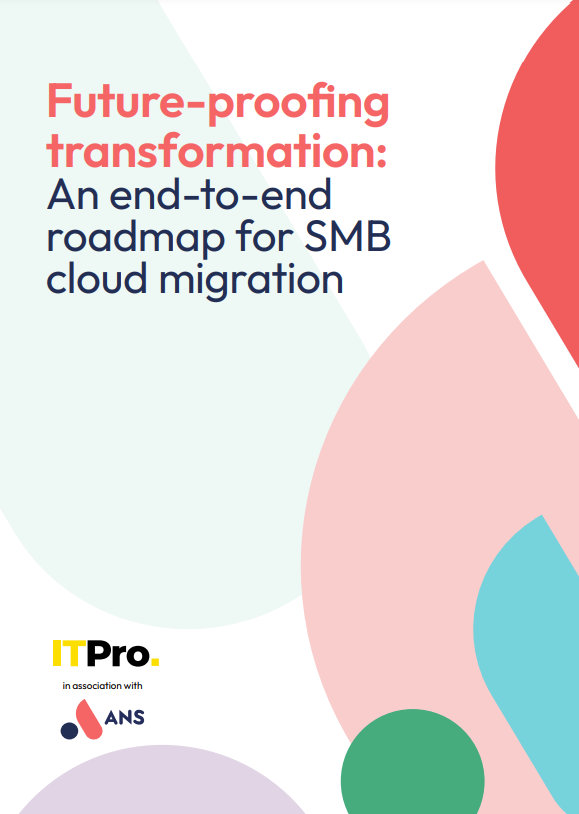Small businesses lament Sage's monthly subscription changes amid rising costs
A number of small businesses have raised concerns that changes to software subscriptions could impose a heavy financial toll


British businesses have complained that Sage “strong-armed” them into accepting subscription services amid threats that their software packages could be switched off.
Companies with perpetual single-payment software licences told the Financial Times that the firm pushed them into accepting more expensive packages on a monthly subscription model, prompting a wave of complaints.
Perpetual licences purchased by Sage customers are expected to last 15 years, according to the company’s terms and conditions.
However, the firm informed customers that it would switch off access to software by 30 September. Sage justified the decision on ‘security grounds’, and told FT that this would be done to “protect consumer data”.
"A small number of customers will be impacted unless they move to a subscription product as we don’t sell perpetual plans anymore,” the firm added.
The move by Sage meant that some companies rapidly upgraded their subscriptions to avoid the risk of losing access to critical organisational data, and could see many paying more for services in the long run.
Complainants also suggested that the decision to direct them to monthly packages seemed “merely a means to increase the cost” of services. Sage strongly denied the claims.
Get the ITPro daily newsletter
Sign up today and you will receive a free copy of our Future Focus 2025 report - the leading guidance on AI, cybersecurity and other IT challenges as per 700+ senior executives
A spokesperson for the company told IT Pro that the “vast majority” of impacted customers were entitled to an upgrade as part of their Sage Cover contract. This provides customers with free upgrades to the latest version, in addition to product support.
“The remainder of customers, which equates to a small subset, who are using impacted versions of Sage 50 perpetual are off plan, which means they’ve chosen to not have a Sage Cover contract and therefore are not entitled to version upgrades or product support,” the spokesperson said.
“Sage communicated with its customers about this, giving six months’ notice and advised on the action they needed to take and how we could support them.”
Sage's pivoting subscription approach
Denis Torii, VP analyst at Gartner told IT Pro that the decision could be an attempt to better align company practices with market competitors, such as QuickBooks or Xero, for example.
The accountancy software giant has made a concerted shift towards promoting subscription software offerings. A key factor in this move appears to be a determination to improve resilience in the face of challenging market conditions.
And in the long run, monthly software packages represent a more robust, recurring revenue stream compared to one-off long-term licence purchases.
RELATED RESOURCE

“Are they trying to align themselves with other vendor practices? I think yes", Torii said. "There is a component here of them trying to better align with what others are already doing.
“It’s hard to blame them for trying to do something like this, because again, there might be an honourable reason for that, such as investing resources in solutions and innovation.
“There’s of course a portion of this that could be increasing revenue and positioning themselves better in the market as a company,” Torii added.
Sage told IT Pro that increasing recurring revenues was not the purpose of phasing out the software. The firm added that this was “not material” to the business.
“This was not a revenue opportunity for us, this was about futureproofing customer data, and for the vast majority of customers this resulted in a free upgrade, with no material benefit to us," a spokesperson said.
“What Sage may be doing here is not necessarily something that is exclusive to Sage, and is probably something that we would see others doing,” Torii said.
In recent months, there have been public discussions about SAP potentially increasing maintenance rates. In September, the software giant announced it will “moderately” increase annual support fees by a maximum of 3.3%.
Meanwhile, in July 2022 Oracle confirmed it would increase support prices by around 8% to compensate for inflation and rising costs.
Torii said that it is understandable that small businesses are affected by increased software costs amidst a period of rising costs and inflation.
“For larger organisations, that increase on individual user licences won’t make a big difference, but it’s a different thing for small businesses,” he said.
Sage snaps up remaining Brightpearl shares for £225 million How to reduce your company's software costs Reducing software costs with cloud computing
“I think that message is clear. And one can’t blame customers for being concerned about that, because if you increase a $50 licence on a monthly basis, for example, then at the end of the year you are paying $600 dollars more – which in a low margin business is a heavy impact.”
Since September, shares at Sage have increased by 7%. The firm also reported strong revenue growth in the year to September 2022.
Revenue increased 5% to £1.9 billion, the company announced. This was partly buoyed by impressive growth across cloud products and North American sales, where recurring revenue surged by 14% to £779 million.

Ross Kelly is ITPro's News & Analysis Editor, responsible for leading the brand's news output and in-depth reporting on the latest stories from across the business technology landscape. Ross was previously a Staff Writer, during which time he developed a keen interest in cyber security, business leadership, and emerging technologies.
He graduated from Edinburgh Napier University in 2016 with a BA (Hons) in Journalism, and joined ITPro in 2022 after four years working in technology conference research.
For news pitches, you can contact Ross at ross.kelly@futurenet.com, or on Twitter and LinkedIn.
-
 Enterprises are doubling down on IT optimization strategies – and it’s delivering huge financial returns
Enterprises are doubling down on IT optimization strategies – and it’s delivering huge financial returnsNews Organizations that have cracked IT cost optimization and innovation reap the rewards both financially and in terms of time to market.
By Emma Woollacott
-
 Unlock the potential of LATAM’s booming crypto market
Unlock the potential of LATAM’s booming crypto marketwhitepaper Strategic pathways for crypto companies looking to expand into Latin America
By ITPro
-
 The online cash revolution
The online cash revolutionwhitepaper Why adding eCash to the checkout unlocks more growth
By ITPro
-
 How payments support the growth of software platforms
How payments support the growth of software platformswhitepaper Discover how Paysafe can help drive the growth and success of your software platform
By ITPro
-
 Appian wants to be the AI company for AI skeptics
Appian wants to be the AI company for AI skepticsAnalysis The firm outlines its AI strategy at Appian World 2023 while using ChatGPT and Midjourney to create scripts and imagery for keynote presentations
By Rory Bathgate
-
 How to choose an HR system
How to choose an HR systemWhitepaper What IT leaders need to know
By ITPro
-
 What you need to know about the new features coming to Microsoft Teams Premium
What you need to know about the new features coming to Microsoft Teams PremiumNews Teams Premium will see users granted a range of exclusive tools to improve workflow and collaboration
By Ross Kelly
-
 Food and beverage traceability
Food and beverage traceabilityWhitepaper Understanding food and beverage manufacturing compliance and traceability
By ITPro

